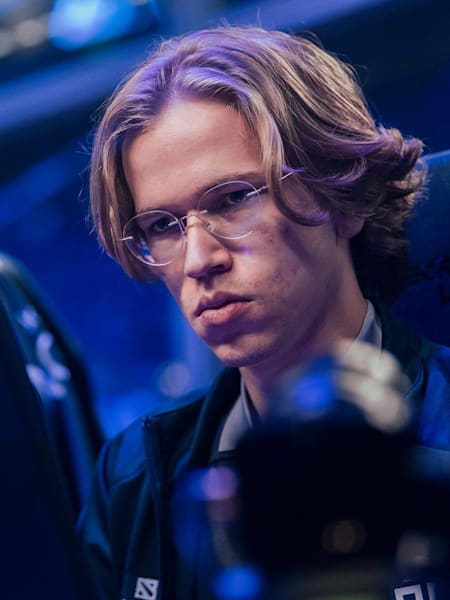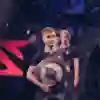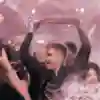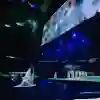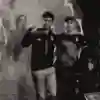Watching the first game of The International 2019’s grand final, emotions were truly tested; there were highs, lows, more highs and then the ultimate low. As Team Liquid were sprinting down mid towards the OG throne, ana had the option to buy back, and then still had the option to buy back as Liquid entered the base, and then still had the option to buy back as Liquid started to hit the throne. Finally he did it, but it was too late. One well-timed ravage meant he couldn’t reach Liquid’s players in time and the throne exploded. OG had lost game one, when all they needed to do was take that one last fight in their base, and the game would have been theirs.
Collective hearts around the arena sank; and no one could really think about anything else for the rest of the break between games. OG were so close to going 1-0 in the TI grand final, and it all came crashing down so quickly. It’s safe to say that if we were playing on stage right there and then, we would have lost the next two games in quick succession. Even after game two we were still thinking about the end of game one.
But OG are some of the strongest players in the world when it comes to their mental state. While we were still analysing it in the stands, on stage they had already moved on, forgotten about the mistake and were ready to play. The turnaround was truly impressive; even other top teams would have struggled to come back after an ending like that, but as soon as the next game started it was clear that it wasn’t even in the players’ minds – and wouldn’t have any impact on the rest of the series.
“OG’s win is a reminder for teams that esports is a mind game,” says Mia Stellberg, a sports psychologist who worked with OG at this year’s The International. “I’ve talked with a lot of players and they say at least 50 percent of it is mental factors, whether that’s social skills, motivation, determination, picking yourself up after losing. There’s so many things to the mental side. You can’t just game nine hours a day and think that you're ready.”
Stellberg may be a familiar face to anyone who also watches Counter-Strike: Global Offensive. She has also worked with reigning world champions Astralis, being a key factor in their rise to the top of the CS:GO scene and their prolonged reign of dominance at the top of the rankings. She was one of the first psychologists to clearly make a big impact on a team, and now she has brought her skills to OG and proven that, once again, having a top quality sports psychologist can give teams a big advantage when it comes to the biggest events in the world.
“I believe that the key factor is preventing problems,” says Stellberg. “I don’t want to teach them what to do if they’re stressed. I want to prepare them in a way that they’re not stressed. So the goal every day wasn’t just winning, it was about how the players approached the entire event. What do you focus on? Our focus was on extremely good play and then the result is winning.
“But 95 percent of the other teams focused on winning, but that doesn’t always make players comfortable. We taught them to do what’s natural and to not compromise at an event, which enables them to stay in their comfort zone. That means you’re comfortable, you enjoy it and you own it. They played like they owned it, they played so much and you could see how comfortable they were and how much fun they were having.”
Having Stellberg with them throughout TI meant that the players could always remain focused and talk to her about any issues they were having. But the work started well before they got to Shanghai, as the team had been working with Stellberg for weeks leading up to the event. Together, they built up plans and strategies to help manage any feelings that could get in the way of peak performance, making sure they were heading into TI as prepared as they could be.
“It began that I got to know all of them individually,” says Stellberg. “We had meetings, talks and I went through their entire careers to analyse their strengths and weaknesses, and work out the recipe for success. I flew to Denmark for three weeks. Then for The International, I flew to Shanghai and every day we had things in the schedule like team meetings or individual talks."
But OG had another advantage over the other teams that allowed them to be more relaxed, and actually enjoy the Dota they were playing. As they had already won TI last year, the pressure was somewhat off, especially as they did not come into the competition as favourites. This meant there were no expectations to live up to, and they could just have a good time.
"The difference here is that OG are not playing for money,” says Stellberg. “The love of the game is the motivation. Right goals in life give you freedom to enjoy things with less pressure. The point was to enjoy the games and have creativity, self confidence and being very comfortable in what you do."
All of this meant that OG could easily recover after that game one loss in the grand final, and ultimately kept them calm throughout the entire tournament. While other teams looked deathly serious when walking onto the stage OG were often having a bit of a joke, and looked way too relaxed to be playing in a $34 million tournament. But that was exactly what they needed and allowed them to play on the biggest stage in esports and not be phased by any mistakes. It truly was a masterclass in staying calm under pressure.

